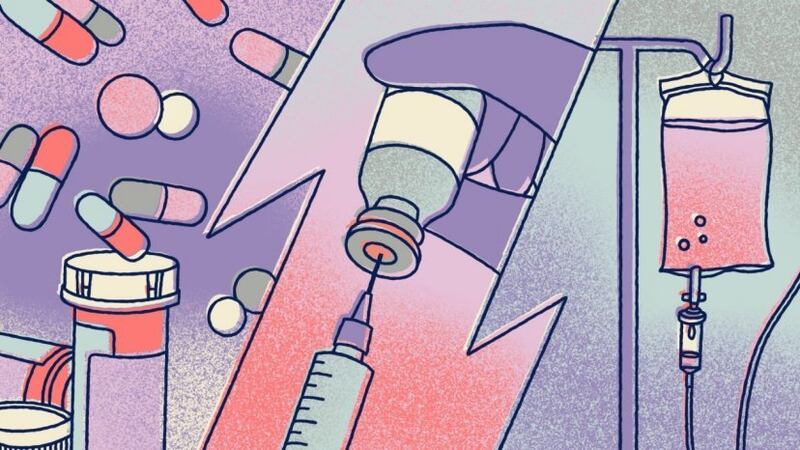The vaccine may not work as well in people with compromised immune systems - but it’s still safe to have and will continue to offer some protection in most people.
People who have cancer, are immunocompromised or taking medications that suppress their immune system are at increased risk of severe illness from Covid-19, making them a priority for receiving the Pfizer vaccine.
Many people take medication that suppresses their immune system. This can be for the treatment of cancer, severe asthma, autoimmune diseases, or after organ transplantation. Conditions such as HIV and kidney failure also affect and weaken the immune system.
As with all vaccines, people who are immunosuppressed may not respond as strongly as someone with a fully functioning immune system.
However, the Covid-19 vaccine can still offer protection - particularly against severe, life-threatening disease.
The Pfizer vaccine does not contain any live virus, making it safe for people with compromised immune systems. There are no other specific safety concerns for Covid-19 vaccines in these patients.
As the global roll-out has ramped up, there has also been no real-world evidence that the vaccines prompt disease flare-ups in people with inflammatory or autoimmune conditions.
The OCTAVE trial in the UK is one of the largest studies in the world so far looking at mRNA Covid-19 vaccination in immunocompromised patients.
Initial data published in the Lancet last month showed 40 per cent of people in the patient groups had a low antibody immune response after two doses of either the Pfizer or AstraZeneca vaccines.
About 11 per cent of immunocompromised patients failed to generate any antibodies four weeks after two vaccine doses - meaning about nine in 10 patients did have some immune response.
A small study of fully vaccinated patients hospitalised with Covid-19 in Israel found 40 per cent were immune compromised.
New Zealand immunologist Maia Brewerton says it was always expected that immunocompromised people may respond differently to the Covid-19 vaccine.
A third dose has been recommended for people who are immunocompromised, which has been echoed by UK health officials and the Centre for Disease Prevention and Control (CDC) in the United States.
However it is not yet clear what difference a booster shot would make, or what vaccine is the best to ‘boost’ with.
The spectrum for being immunocompromised varies enormously - from people who take small doses of steroids, to those who have had solid organ or bone marrow transplants.
There is no one-size-fits-all approach for this group, which also makes it difficult to collect robust data.
The timing of the vaccine is important for immunocompromised people, and will depend on the type of medication or treatment a person is receiving.
Patients and their healthcare professionals should also consider when the vaccine is given to someone in relation to their therapy, in order to maximise the immune response. This may mean receiving the vaccine a few weeks before treatment, or in between rounds of chemotherapy or other treatment.
There is no evidence to suggest that the Covid19 vaccine interacts with cancer treatments. Information published by the UK Chemotherapy Board says observational studies and case series so far suggest there is no heightened risk or increase in immune-related adverse events.
Decisions around timing of the vaccine are about maximising how effective the vaccine is, rather than concerns around how it will interact with cancer treatments.
The Cancer Control Agency here in Aotearoa says critical cancer treatment should not be held or paused for vaccinations.
It is also crucial that cancer patients receive both Covid-19 vaccine doses, studies show.
Research from the UK shows cancer patients have poor immune responses after a single dose of vaccine, but that this improves "considerably" following the second dose.
It is also critical that immunocompromised people have a “wall of vaccination” around them, which means making sure friends and family are also vaccinated to protect the immunocompromised person, and ensure that their nearest and dearest are also protected.
Reporting disclosure statement: Immunologist and The Whole Truth: Covid-19 Vaccination expert panel member Dr Maia Brewerton and Cancer Control Agency national director Professor Diana Sarfati provided expert advice for this post. It was also reviewed by The Whole Truth: Covid-19 Vaccination expert panel members Dr Dianne Sika-Paotonu, a senior lecturer in pathology and molecular medicine and Professor David Murdoch, a clinical microbiologist and infectious diseases expert.


